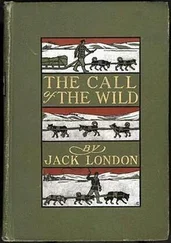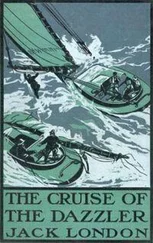Jack London - The House of Pride
Здесь есть возможность читать онлайн «Jack London - The House of Pride» весь текст электронной книги совершенно бесплатно (целиком полную версию без сокращений). В некоторых случаях можно слушать аудио, скачать через торрент в формате fb2 и присутствует краткое содержание. Жанр: Классическая проза, на английском языке. Описание произведения, (предисловие) а так же отзывы посетителей доступны на портале библиотеки ЛибКат.
- Название:The House of Pride
- Автор:
- Жанр:
- Год:неизвестен
- ISBN:нет данных
- Рейтинг книги:3 / 5. Голосов: 1
-
Избранное:Добавить в избранное
- Отзывы:
-
Ваша оценка:
- 60
- 1
- 2
- 3
- 4
- 5
The House of Pride: краткое содержание, описание и аннотация
Предлагаем к чтению аннотацию, описание, краткое содержание или предисловие (зависит от того, что написал сам автор книги «The House of Pride»). Если вы не нашли необходимую информацию о книге — напишите в комментариях, мы постараемся отыскать её.
The House of Pride — читать онлайн бесплатно полную книгу (весь текст) целиком
Ниже представлен текст книги, разбитый по страницам. Система сохранения места последней прочитанной страницы, позволяет с удобством читать онлайн бесплатно книгу «The House of Pride», без необходимости каждый раз заново искать на чём Вы остановились. Поставьте закладку, и сможете в любой момент перейти на страницу, на которой закончили чтение.
Интервал:
Закладка:
My love to you. My love be with you till we meet again.
There was no need for speech to tell their story. About her, passengers were flinging their garlands to their friends on the dock. Steve held up his hands and his eyes pleaded. She slipped her own garland over her head, but it had become entangled in the string of Oriental pearls that Mervin, an elderly sugar king, had placed around her neck when he drove her and her father down to the steamer.
She fought with the pearls that clung to the flowers. The transport was moving steadily on. Steve was already beneath her. This was the moment. The next moment and he would be past. She sobbed, and Jeremy Sambrooke glanced at her inquiringly.
“Dorothy!” he cried sharply.
She deliberately snapped the string, and, amid a shower of pearls, the flowers fell to the waiting lover. She gazed at him until the tears blinded her and she buried her face on the shoulder of Jeremy Sambrooke, who forgot his beloved statistics in wonderment at girl babies that insisted on growing up. The crowd sang on, the song growing fainter in the distance, but still melting with the sensuous love-languor of Hawaii, the words biting into her heart like acid because of their untruth.
Aloha oe, Aloha oe, e ke onaona no ho ika lipo, A fond embrace, ahoi ae au, until we meet again.
CHUN AH CHUN
There was nothing striking in the appearance of Chun Ah Chun. He was rather undersized, as Chinese go, and the Chinese narrow shoulders and spareness of flesh were his. The average tourist, casually glimpsing him on the streets of Honolulu, would have concluded that he was a good-natured little Chinese, probably the proprietor of a prosperous laundry or tailorshop. In so far as good nature and prosperity went, the judgment would be correct, though beneath the mark; for Ah Chun was as good-natured as he was prosperous, and of the latter no man knew a tithe the tale. It was well known that he was enormously wealthy, but in his case “enormous” was merely the symbol for the unknown.
Ah Chun had shrewd little eyes, black and beady and so very little that they were like gimlet-holes. But they were wide apart, and they sheltered under a forehead that was patently the forehead of a thinker. For Ah Chun had his problems, and had had them all his life. Not that he ever worried over them. He was essentially a philosopher, and whether as coolie, or multi-millionaire and master of many men, his poise of soul was the same. He lived always in the high equanimity of spiritual repose, undeterred by good fortune, unruffled by ill fortune. All things went well with him, whether they were blows from the overseer in the cane field or a slump in the price of sugar when he owned those cane fields himself. Thus, from the steadfast rock of his sure content he mastered problems such as are given to few men to consider, much less to a Chinese peasant.
He was precisely that-a Chinese peasant, born to labour in the fields all his days like a beast, but fated to escape from the fields like the prince in a fairy tale. Ah Chun did not remember his father, a small farmer in a district not far from Canton; nor did he remember much of his mother, who had died when he was six. But he did remember his respected uncle, Ah Kow, for him had he served as a slave from his sixth year to his twenty-fourth. It was then that he escaped by contracting himself as a coolie to labour for three years on the sugar plantations of Hawaii for fifty cents a day.
Ah Chun was observant. He perceived little details that not one man in a thousand ever noticed. Three years he worked in the field, at the end of which time he knew more about cane-growing than the overseers or even the superintendent, while the superintendent would have been astounded at the knowledge the weazened little coolie possessed of the reduction processes in the mill. But Ah Chun did not study only sugar processes. He studied to find out how men came to be owners of sugar mills and plantations. One judgment he achieved early, namely, that men did not become rich from the labour of their own hands. He knew, for he had laboured for a score of years himself. The men who grew rich did so from the labour of the hands of others. That man was richest who had the greatest number of his fellow creatures toiling for him.
So, when his term of contract was up, Ah Chun invested his savings in a small importing store, going into partnership with one, Ah Yung. The firm ultimately became the great one of “Ah Chun and Ah Yung,” which handled anything from India silks and ginseng to guano islands and blackbird brigs. In the meantime, Ah Chun hired out as cook. He was a good cook, and in three years he was the highest-paid chef in Honolulu. His career was assured, and he was a fool to abandon it, as Dantin, his employer, told him; but Ah Chun knew his own mind best, and for knowing it was called a triple-fool and given a present of fifty dollars over and above the wages due him.
The firm of Ah Chun and Ah Yung was prospering. There was no need for Ah Chun longer to be a cook. There were boom times in Hawaii. Sugar was being extensively planted, and labour was needed. Ah Chun saw the chance, and went into the labour-importing business. He brought thousands of Cantonese coolies into Hawaii, and his wealth began to grow. He made investments. His beady black eyes saw bargains where other men saw bankruptcy. He bought a fish-pond for a song, which later paid five hundred per cent and was the opening wedge by which he monopolized the fish market of Honolulu. He did not talk for publication, nor figure in politics, nor play at revolutions, but he forecast events more clearly and farther ahead than did the men who engineered them. In his mind’s eye he saw Honolulu a modern, electric-lighted city at a time when it straggled, unkempt and sand-tormented, over a barren reef of uplifted coral rock. So he bought land. He bought land from merchants who needed ready cash, from impecunious natives, from riotous traders’ sons, from widows and orphans and the lepers deported to Molokai; and, somehow, as the years went by, the pieces of land he had bought proved to be needed for warehouses, or coffee buildings, or hotels. He leased, and rented, sold and bought, and resold again.
But there were other things as well. He put his confidence and his money into Parkinson, the renegade captain whom nobody would trust. And Parkinson sailed away on mysterious voyages in the little Vega . Parkinson was taken care of until he died, and years afterward Honolulu was astonished when the news leaked out that the Drake and Acorn guano islands had been sold to the British Phosphate Trust for three-quarters of a million. Then there were the fat, lush days of King Kalakaua, when Ah Chun paid three hundred thousand dollars for the opium licence. If he paid a third of a million for the drug monopoly, the investment was nevertheless a good one, for the dividends bought him the Kalalau Plantation, which, in turn, paid him thirty per cent for seventeen years and was ultimately sold by him for a million and a half.
It was under the Kamehamehas, long before, that he had served his own country as Chinese Consul-a position that was not altogether unlucrative; and it was under Kamehameha IV that he changed his citizenship, becoming an Hawaiian subject in order to marry Stella Allendale, herself a subject of the brown-skinned king, though more of Anglo-Saxon blood ran in her veins than of Polynesian. In fact, the random breeds in her were so attenuated that they were valued at eighths and sixteenths. In the latter proportions was the blood of her great-grandmother, Paahao-the Princess Paahao, for she came of the royal line. Stella Allendale’s great-grandfather had been a Captain Blunt, an English adventurer who took service under Kamehameha I and was made a tabu chief himself. Her grandfather had been a New Bedford whaling captain, while through her own father had been introduced a remote blend of Italian and Portuguese which had been grafted upon his own English stock. Legally a Hawaiian, Ah Chun’s spouse was more of any one of three other nationalities.
Читать дальшеИнтервал:
Закладка:
Похожие книги на «The House of Pride»
Представляем Вашему вниманию похожие книги на «The House of Pride» списком для выбора. Мы отобрали схожую по названию и смыслу литературу в надежде предоставить читателям больше вариантов отыскать новые, интересные, ещё непрочитанные произведения.
Обсуждение, отзывы о книге «The House of Pride» и просто собственные мнения читателей. Оставьте ваши комментарии, напишите, что Вы думаете о произведении, его смысле или главных героях. Укажите что конкретно понравилось, а что нет, и почему Вы так считаете.








